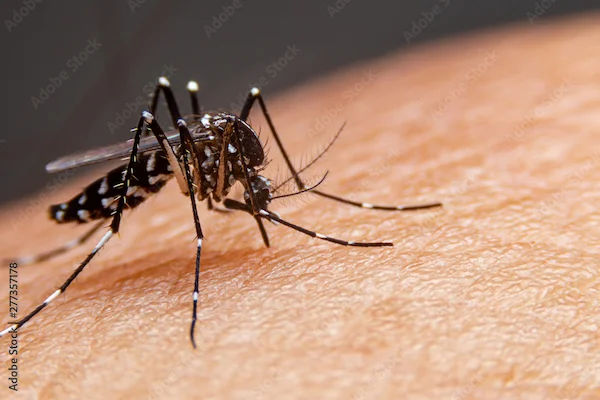Types of Vaginal Bleeding Explained
Learn about the different types of vaginal bleeding, from normal periods to abnormal symptoms like heavy bleeding, spotting, or postmenopausal bleeding. Understand causes, when to worry, and when to seek medical help. Stay informed and take charge of your reproductive health.

Written by Dr. Shaik Abdul Kalam
Reviewed by Dr. Rohinipriyanka Pondugula MBBS
Last updated on 8th Aug, 2025

Introduction
Vaginal bleeding is a common concern among women, and while it can be a normal part of the menstrual cycle, sometimes it may indicate an underlying health issue. Understanding the different types of vaginal bleeding can help you recognize when it’s normal and when you should seek medical advice.
1. Normal Menstrual Bleeding
Every woman experiences menstrual bleeding, which is a natural part of the reproductive cycle.
Duration: Typically lasts 3 to 7 days.
Frequency: Occurs every 21 to 35 days.
Flow: Starts light, becomes heavier, and then tapers off.
When to Worry?
If your periods are extremely heavy (soaking a pad every hour), last longer than a week, or are irregular, it’s best to consult a doctor.
2. Spotting (Light Bleeding Between Periods)
Spotting refers to light bleeding that occurs outside your regular period. It can be caused by:
Ovulation (mid-cycle spotting due to hormonal changes).
Birth control pills (especially when starting or missing doses).
Pregnancy (implantation bleeding).
Infections or STIs.
When to Worry?
If spotting is frequent, heavy, or accompanied by pain, it could indicate an infection, fibroids, or hormonal imbalance.
3. Heavy Menstrual Bleeding (Menorrhagia)
Heavy bleeding during periods that interferes with daily life may be a sign of menorrhagia.
Possible Causes:
Hormonal imbalances.
Uterine fibroids or polyps.
Endometriosis.
Blood clotting disorders.
Management Tips:
Use iron-rich foods (spinach, lentils) to prevent anemia.
Stay hydrated and rest during heavy flow days.
Consult a doctor if bleeding affects your quality of life.
4. Postmenopausal Bleeding
Bleeding after menopause (when periods have stopped for 12 months) is not normal and should always be checked by a doctor.
Possible Causes:
Thinning of vaginal tissues (atrophic vaginitis).
Uterine polyps or fibroids.
Endometrial or cervical cancer (rare but serious).
Action Step:
If you experience any bleeding after menopause, see a doctor immediately for evaluation.
5. Bleeding During Pregnancy
Vaginal bleeding during pregnancy can be alarming but isn’t always dangerous.
First Trimester: Light spotting may occur due to implantation or cervical changes.
Later Pregnancy: Bleeding could indicate complications like placenta previa or miscarriage.
When to Seek Help?
Heavy bleeding with cramps.
Bleeding accompanied by dizziness or fever.
6. Breakthrough Bleeding (Due to Birth Control)
Some women experience irregular bleeding when starting or changing birth control methods (pills, IUDs, implants).
Consult Top Specialists for Personalised Tips
What to Do?
Give your body 3-6 months to adjust.
If bleeding persists, consult your doctor for a different contraceptive option.
7. Abnormal Uterine Bleeding (AUB)
AUB refers to irregular bleeding that doesn’t fit into a normal menstrual pattern.
Causes Include:
PCOS (Polycystic Ovary Syndrome).
Thyroid disorders.
Uterine or cervical abnormalities.
Diagnosis & Treatment:
Blood tests, ultrasounds, or biopsies may be needed.
Treatment depends on the cause (hormonal therapy, lifestyle changes, or surgery).
When to See a Doctor?
Consult a healthcare provider if you experience:
Bleeding after menopause.
Extremely heavy or prolonged periods.
Bleeding between periods with pain.
Bleeding during pregnancy.
Tips for Managing Vaginal Bleeding
1. Track Your Cycle: Use a period tracker app to monitor irregularities.
2. Stay Hydrated: Helps reduce fatigue from heavy bleeding.
3. Eat Iron-Rich Foods: Prevents anemia (leafy greens, beans, red meat).
4. Avoid Stress: High stress can disrupt your cycle.
5. Exercise Regularly: Helps regulate hormones.
Need Help? Book a Consultation Today!
If you’re concerned about abnormal vaginal bleeding, don’t hesitate to seek medical advice. Early diagnosis can prevent complications.
Conclusion
Vaginal bleeding can vary from normal to concerning. Knowing the difference helps you take the right action. Always listen to your body and seek medical advice when in doubt.
Consult Top Specialists
Consult Top Specialists for Personalised Tips
Dr. K Anusha
Obstetrician and Gynaecologist
4 Years • MBBS, DGO
Yemmiganur
SRINIVASAA HOSPITAL, Yemmiganur

Dr. Mona Yadav
Obstetrician and Gynaecologist
19 Years • MBBS, MD (Obstetrics & Gynaecology)
Dombivli
Nulife multispeciality, Dombivli

Dr. Parul Sharma
Obstetrician and Gynaecologist
8 Years • MBBS, MS (Obstetrics & Gynaecology)
New Delhi
THE DOCTORS NESST, New Delhi

Dr. Asha Rani Singh
Obstetrician and Gynaecologist
24 Years • MBBS DGO
Delhi
Dr Asha Rani Singh Clinic, Delhi

Dr. Shyamala Devi
Obstetrician and Gynaecologist
38 Years • MBBS, MS Obstetrics & Gynaecology
Vijayawada
Sri Shivshakti Nilayam, Vijayawada
Consult Top Specialists
Dr. K Anusha
Obstetrician and Gynaecologist
4 Years • MBBS, DGO
Yemmiganur
SRINIVASAA HOSPITAL, Yemmiganur

Dr. Mona Yadav
Obstetrician and Gynaecologist
19 Years • MBBS, MD (Obstetrics & Gynaecology)
Dombivli
Nulife multispeciality, Dombivli

Dr. Parul Sharma
Obstetrician and Gynaecologist
8 Years • MBBS, MS (Obstetrics & Gynaecology)
New Delhi
THE DOCTORS NESST, New Delhi

Dr. Asha Rani Singh
Obstetrician and Gynaecologist
24 Years • MBBS DGO
Delhi
Dr Asha Rani Singh Clinic, Delhi

Dr. Shyamala Devi
Obstetrician and Gynaecologist
38 Years • MBBS, MS Obstetrics & Gynaecology
Vijayawada
Sri Shivshakti Nilayam, Vijayawada




